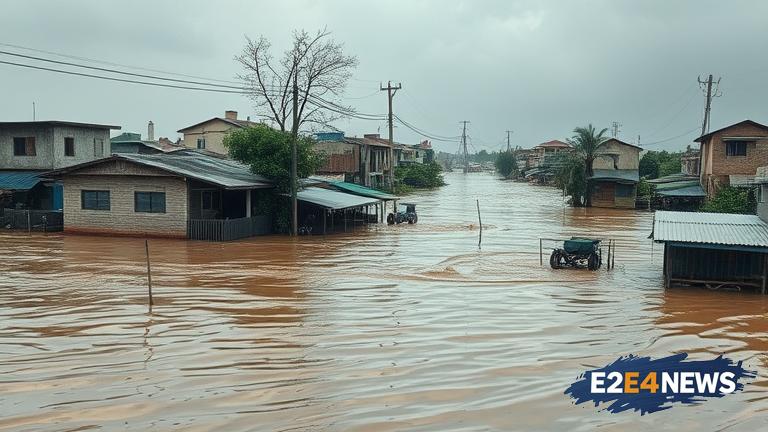The recent spell of heavy rainfall in Pakistan has resulted in one of the most severe flooding incidents in the country’s history. The downpour, which began in mid-June, has shown no signs of abating, with the Pakistan Meteorological Department predicting more rainfall in the coming days. The floods have affected over 30 million people, with thousands displaced and forced to seek shelter in makeshift camps. The government has declared a state of emergency, with the military and rescue teams working tirelessly to evacuate those stranded and provide aid to the affected areas. The flooding has also resulted in significant damage to infrastructure, with roads, bridges, and buildings destroyed or severely damaged. The agricultural sector has also been severely impacted, with crops destroyed and livestock killed. The economic toll of the floods is expected to be substantial, with estimates suggesting that the damage could run into billions of dollars. The international community has come forward to offer aid and assistance, with several countries pledging financial and humanitarian support. The United Nations has also launched an appeal for $160 million to support the relief efforts. The Pakistani government has faced criticism for its handling of the crisis, with many accusing it of being slow to respond and inadequate in its relief efforts. The opposition has called for the government to declare a national emergency and seek international assistance. The floods have also raised concerns about the country’s preparedness for natural disasters, with many questioning the government’s ability to respond to such crises. The impact of the floods on the country’s economy and infrastructure is likely to be felt for a long time, with many businesses and industries affected. The floods have also highlighted the need for climate change mitigation and adaptation strategies, with Pakistan being one of the most vulnerable countries to the impacts of climate change. The government has announced plans to establish a climate change ministry, which will be responsible for coordinating the country’s response to climate-related disasters. The floods have also resulted in a significant increase in waterborne diseases, with reports of cholera and diarrhea on the rise. The government has established medical camps in the affected areas, but many are concerned about the spread of diseases. The international community has pledged to support the government’s efforts to combat the spread of diseases. The floods have also raised concerns about the country’s food security, with the agricultural sector severely impacted. The government has announced plans to provide support to farmers and ensure that the country’s food supply is not disrupted. The floods have also highlighted the need for disaster risk reduction and management strategies, with many calling for the government to invest in flood protection infrastructure. The government has announced plans to build new dams and flood protection walls, but many are skeptical about the effectiveness of these measures. The floods have also resulted in a significant increase in poverty and inequality, with many of the affected communities already living below the poverty line. The government has announced plans to provide financial support to these communities, but many are concerned about the long-term impact of the floods on the country’s social and economic fabric.
